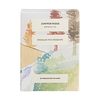
Each year, we donate a portion of proceeds from every Juniper Ridge sale to non-profit organizations that fight to keep the wilderness wild. We call this our Western Wilderness Defense Fund, and since our founder started this practice almost 25 years ago, we have been able to continue this tradition with your help.
The Importance of Wilderness Conservation
In a world increasingly dominated by urban sprawl and technological advancement, the preservation of wilderness areas has never been more critical. Wilderness conservation is not just about protecting scenic landscapes; it’s about safeguarding ecosystems, ensuring the survival of countless species, and maintaining a vital connection between humans and the natural world. Wilderness conservation matters, including the preservation of areas that are exclusively for wildlife.
Protecting Public Spaces for Human Use
It’s safe to say that Juniper Ridge strongly believes that public wilderness areas are an invaluable sanctuary for people to reconnect with nature. This point is central to everything we do; from the ingredients we use and the scents we make, to our Western Wilderness Defense Fund. In our fast-paced, digitally-driven lives, these spaces offer a rare opportunity to escape the stresses of daily life and find solace in the outdoors. Hiking through a forest, kayaking on a pristine river, or simply sitting beneath a towering tree can have profound effects on mental and physical health. Studies* have shown that spending time in nature reduces stress, boosts mood, and improves overall well-being.
Beyond personal health benefits, public wilderness areas play a crucial role in fostering environmental awareness and stewardship. When people experience the beauty and serenity of natural spaces firsthand, they are more likely to advocate for their protection. Public lands also serve as outdoor classrooms, where individuals of all ages can learn about biodiversity, ecosystems, and the importance of sustainable practices.
Moreover, wilderness areas contribute significantly to local economies. National parks, forests, and wildlife refuges attract millions of visitors annually, generating revenue through tourism and recreation. This economic boost often supports rural communities, creating jobs and funding local businesses.
Preserving Areas Exclusively for Wildlife
While public access to nature is essential, it is equally important to set aside areas reserved exclusively for wildlife. These spaces are critical for the survival of countless species, many of which are threatened or endangered. As humans continue to encroach on natural habitats, wildlife reserves and protected areas provide safe havens where animals can live, breed, and thrive without interference.
Biodiversity—the variety of life on Earth—is essential for the health of our planet. Each species, no matter how small, plays a unique role in maintaining ecological balance. For example, bees and other pollinators are crucial for the reproduction of many plants, which in turn support entire food chains. By protecting wilderness areas, we ensure the survival of these intricate and interdependent systems.
In addition to preserving biodiversity, wildlife-only areas act as natural laboratories for scientific research. Scientists use these spaces to study ecosystems, monitor climate change impacts, and develop strategies for conservation and restoration. These insights are invaluable for addressing global environmental challenges.
 A Balanced Approach
A Balanced Approach
The key to effective wilderness conservation lies in finding a balance between human use and wildlife protection. While public access to wilderness areas fosters appreciation and support for conservation, unrestricted human activity can harm fragile ecosystems. Sustainable practices, such as limiting visitor numbers, enforcing strict regulations, and promoting Leave No Trace principles, are essential for minimizing our impact.
At the same time, dedicated wildlife reserves must remain off-limits to human intrusion, allowing ecosystems to function undisturbed. These areas serve as critical benchmarks for understanding what healthy, untouched environments look like and how they evolve over time.
Wilderness conservation is a vital endeavor that benefits all of us (humans, other animals, plants, and the planet as a whole). That’s why every year we happily donate 10% of our profits or 1% of sales (whichever is greater) to non-profit organizations dedicated to wilderness conservation efforts. We call this initiative our Western Wilderness Defense Fund, or WWDF for short. ;)

Please explore the list, discover which causes resonate with you, and as always, don’t hesitate to get involved.
*Further reading on the impact of nature on our wellbeing:
Weir, Kirsten. “Nurtured by Nature.” Monitor on Psychology, American Psychological Association, 1 Apr. 2020, www.apa.org/monitor/2020/04/nurtured-nature.
Nejade, Rachel M, et al. “What Is the Impact of Nature on Human Health? A Scoping Review of the Literature.” Journal of Global Health, U.S. National Library of Medicine, 16 Dec. 2022, pmc.ncbi.nlm.nih.gov/articles/PMC9754067/.






















